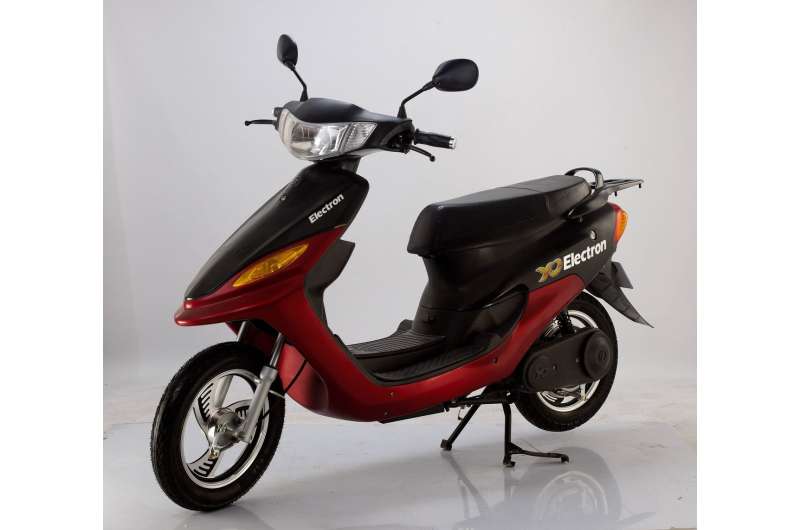Credit: CC0 Public Domain
What a difference a year can make. It's mid-morning in downtown Los Angeles, and there are e-scooters on every major street.
But unlike last summer, which saw chaos on sidewalks as riders took to the streets to cruise, often ran into pedestrians and threatened to have cities outlaw the new technology, downtown at least, the situation is becoming somewhat orderly.
The scooters are mostly parked nicely, away from pedestrians, in what's called the "Furnishing Zone," what transportation officials call the area that's home to bus stops, garbage cans, parking meters and the like. There are clear maps on some streets showing folks where to park their scooters.
Los Angeles has more scooters than any other city, with over 33,000 on the streets, from a variety of companies including Bird, Lime, Uber and Lyft.
So it's a step—and a baby one—still the cities admit they have a long way to go. After all, a spot check in downtown Los Angeles this week found most scooter renters still riding on the sidewalks, despite the scooters themselves clearly indicating they are to be in the streets with cars and bicycles. An Instagram feed continues to show images of people who have set scooters on fire and tossed them into the ocean. In Portland, Oregon, recent news stories told of divers going into the local Willamette River to retrieve 50 dumped scooters. And this week saw a man on a scooter run over by a bus in Atlanta.
So what's a city to do? Get more data, share it with others and then get better about enforcing the rules. Or at least, talk the talk.
"We need choices for how to get around," says Seleta Reynolds, the general manager of the Los Angeles Department of Transportation. "But we also need common-sense regulations," to keep the e-scooters away from pedestrians and parked correctly.
The city has organized an alliance with some 50 other cities and the scooter companies to share locally created software to track the local usage.
"We all can't solve these problems by ourselves," says Reynolds.
Cities included in the alliance include Austin, Texas, Portland, Oregon and New York City.
Cities are collecting data from scooter companies, but it's not personal information. "I don't care who is on the scooter, how old they are or where they live," Reynolds says. "I care about the scooters. How many are out there, where are they parked, are they ending up in places where they shouldn't be?"
For instance, the famed Venice Canals of Venice Beach, California are off-limits to scooter riding, and they're not welcome in some of the cities weekend bicycle festivals.
In Portland, where nearly 2,000 scooters are on city streets, data lets officials know how people are using them and if they are, indeed, getting to the underserved areas of the city that need them, says Chris Warner, the director of Portland's bureau of transportation. "Through data, we can track it,"
The app-based e-scooters arrived without fanfare, forcing cities to deal with them after they were dumped on the streets. Download an app, swipe it over the scooter, take a ride and then just leave it there when you're done.
That was then. Now, the rules are that they can't be dropped off just anywhere. And if a scooter is dumped outside of the "Zone," and left there for over 3 days, the city of L.A. will confiscate the scooter. Period.
The city of L.A. has erected specific signage telling riders where to park the scooters. So that's a start. But the signs are few and far between. And since users pick up their scooters on sidewalks, it's natural for them to want to ride them there.
Reynolds likes the pitch by the scooter companies that their usage can help ease car congestion on urban streets.
"I would love to see these companies succeed," she says. "The more choices people have to get around, the better. If scooters can be part of that solution, that will be great. We just need to hold them accountable."
Perhaps within the next months, scooter users might actually get some tickets for riding in the streets. We watched a rider zoom right past two cops in Los Angeles this week on busy Spring Street downtown despite the California rules of riding in the bike lane. No tickets were issued—this time.























